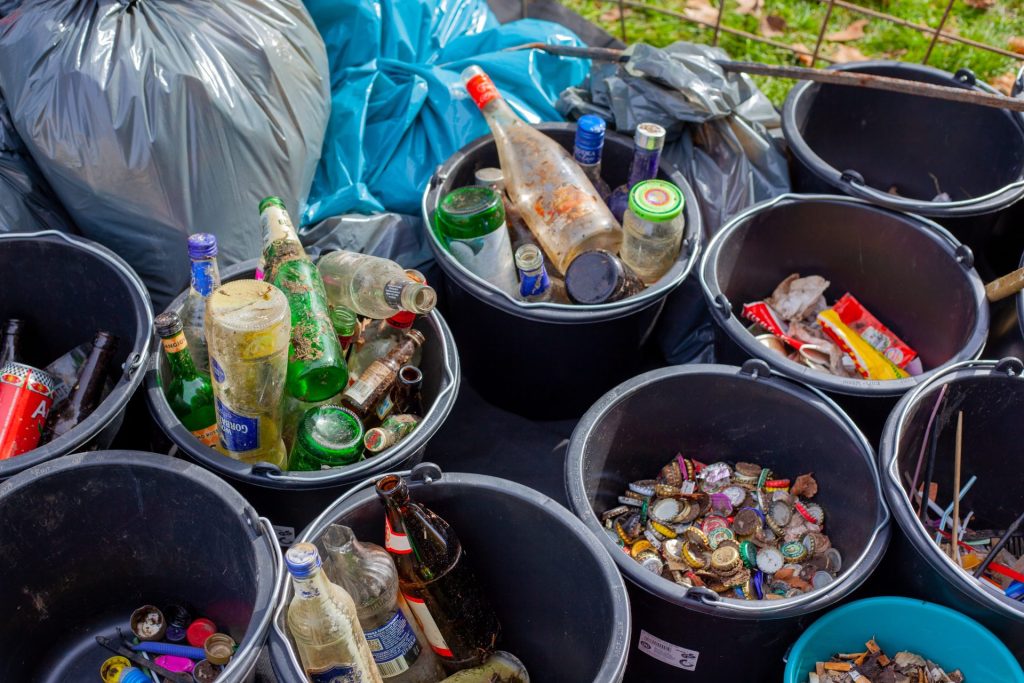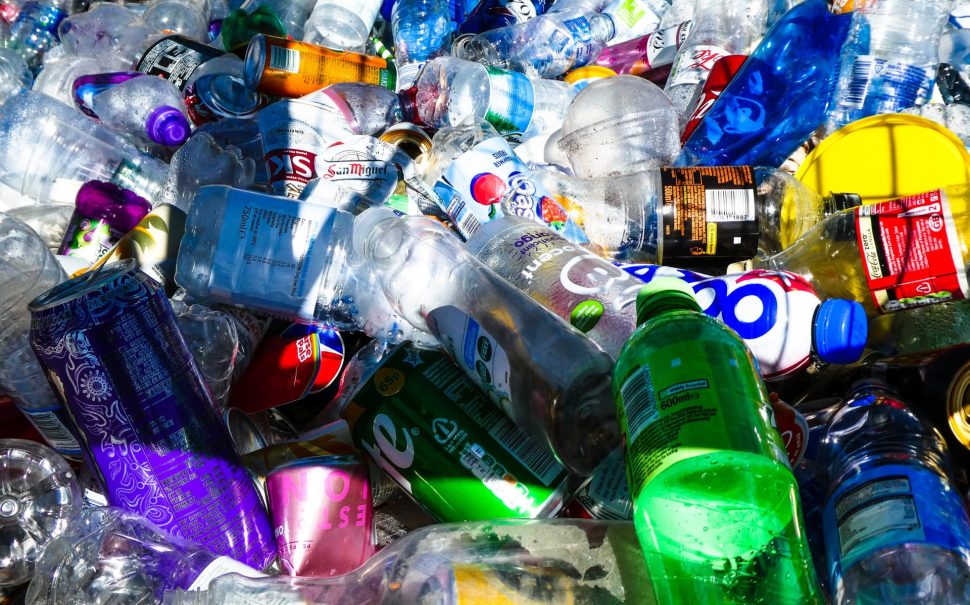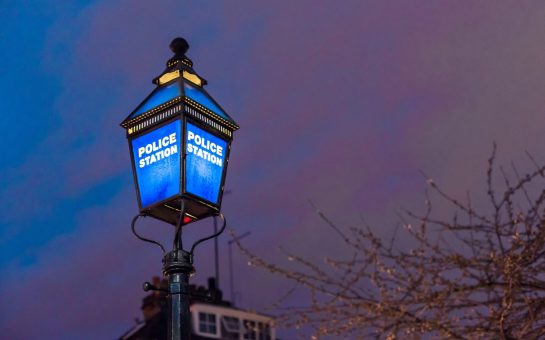London’s recycling rates have failed to improve for the last decade, with more than half the city’s boroughs recycling less in 2022 than 2012.
Londoners recycled just 33% of their household waste in 2022, down slightly from 34% in 2012, according to figures from the Department of Environment Food and Rural Affairs (DEFRA).
The capital scored worse than any other English region for the 17th year running, lagging 16 points behind the top-performing South West where 49% of household waste was recycled.
London resident Adrianna Rembiasz, 25, found it impossible to recycle when she first moved to her flat in Lambeth last year.
She said: “When I first moved into my flat, I was shocked to find out there was only general waste.
“I assumed London would be quite on it because obviously it’s a big city with loads of people.”
After contacting Lambeth council, Rembiasz was able to acquire recycling sacks and has since found the mixed recycling system in the borough easy to navigate.
While Lambeth’s recycling rates increased from 28% in 2012 to 35% in 2022, rates decreased in 17 of London’s 32 boroughs.
The city’s lowest recycling rates last year were recorded in Tower Hamlets and Westminster, which recycled just 20% and 21% of household waste respectively.
Councillor Paul Dimoldenberg, Westminster City Council’s Cabinet Member for City Management and Air Quality, said: “Westminster’s position at the centre of a global city means it faces unique challenges when it comes to recycling and waste.
“The council processes exceptionally large volumes of general waste and street litter left behind by visitors, tourists, and commuters and from major events and demonstrations.
“Most of this waste cannot be recycled, which affects the city council’s overall recycling performance.
“However, the council is absolutely committed to cleaning up Westminster’s environment and exploring new ways to improve recycling across the city.”
Westminster resident Richard Wood, 29, finds recycling easy, but believes the council could do more to inform residents of what can and cannot be recycled.
He said: “Recycling is one of those things where councils need to make it as easy for people as possible.
“They need to get the information out there, but not overload people with it.”
Recycling rates fell most dramatically in Harrow, where 13% less waste was recycled in 2022 than in 2012, and Kensington and Chelsea, which saw a decrease in recycling of 11%.
Councillor Cem Kemahli, Kensington and Chelsea council’s Lead Member for Planning, Place and Environment, said: “We are driving up recycling and reducing carbon footprint in the borough by expanding our food waste collections and working closely with businesses, residents and community groups to help people to reuse and recycle as much as possible.”
Kemahli also highlighted the council’s waste reduction efforts, which includes running sustainability markets where residents can learn how to reuse and repair items instead of throwing them away.
London’s most improved borough of the decade was Lewisham, where rates increased by 13%.
Councillor Louise Krupski, Cabinet Member for Environment and Climate Action, credits this achievement to the introduction of fortnightly general waste collections, the reduction in the size of general waste containers, and the roll-out of a food waste scheme.
Despite the improvement, only 27% of Lewisham’s household waste was recycled in 2022, one of the lowest rates in London.
Krupski said: “I think what we are managing to achieve in an ever-decreasing budget is quite incredible.
“We are doing absolutely everything we possibly can to try and crack this particular nut.”
Councillor Krupski has called on central government to support the council in achieving their ambitious target of recycling 65% of waste by 2030.
Like Kemahli, Krupski also wants to look beyond recycling, towards creating a circular economy and is calling on ministers in Westminster to support local authorities looking to do so.
A circular economy aims to tackle problems including climate change and pollution by keeping products and materials in use for as long as possible before they are discarded as waste.
According to Steve Hynds, policy manager at environmental organisation City to Sea, this is what legislators should be focusing on.
While he believes people are right to be concerned about stagnating recycling rates, Hynds argues that reforming Britain’s recycling systems is not a ‘silver bullet’.
He said: “There’s a flood of plastics and we need all hands on deck to turn those taps off.
“What we don’t need is all hands on deck to keep mopping, because if we’re experiencing a flood and we just hand everyone a mop, it’s going to keep pouring and we’re going to feel overwhelmed.
“It’s also false optimism, it’s psychologically unfair to ask people to just recycle more.
“People try really hard, they spend half an hour sorting out their recycling and then they watch the next wildlife documentary and they hear a statistic about the amount of plastics entering our ocean and they feel devastated.”

In 2021, Greenpeace reported that well over half the plastic waste the government claims is recycled is sent overseas to countries including Turkey and Malaysia where much of it is burned.
Instead of asking people to recycle more, City to Sea want the government to reduce the volume of waste created, including by introducing targets requiring 30% of packaging to be reusable by 2030.
In their January Environmental Improvement Plan, the government committed to eliminating avoidable plastic waste and halving the residual waste produced per person by 2042 whilst also shifting the cost of household packaging disposal to the producers from next year.
The government fell almost 8% short of their previous goal of recycling 50% of England’s household waste by 2020.
In addition to lobbying the government, City to Sea has run a number of campaigns, notably working with the Mayor of London on ‘Refill London’, a campaign encouraging Londoners to use reusable water-bottles by making drinking water more accessible.
According to Hynds, simple changes like this make a big difference.
He said: “If there’s one takeaway from this, it’s about reducing the amount that we put into waste streams, whether that’s landfill, incineration, recycling.
“We need to reduce, reduce is the key word here.”
After hitting recycling rates of over 40% for over a decade, this is exactly where Ealing council’s focus has turned.
Councillor Deirdre Costigan, Deputy Leader of Ealing Council and Cabinet Member for Climate Action, said: “We have to think beyond recycling.
“We are doing amazing in recycling, and now we want to move to doing amazing in diverting consumables from the waste stream in the first place, so that they’re actually repaired and reused instead.
“With Ealing’s strong record on recycling, we would really hope to be leading the way in that area as well.”
The council has committed to trialling a ‘library of things’ which would allow residents to borrow household items before returning them for others to use.
Costigan hopes initiatives like these, in addition to helping the borough reach net zero, will help low-income areas struggling with the cost of living.
Featured image credit: Nick Fewings on Unsplash





